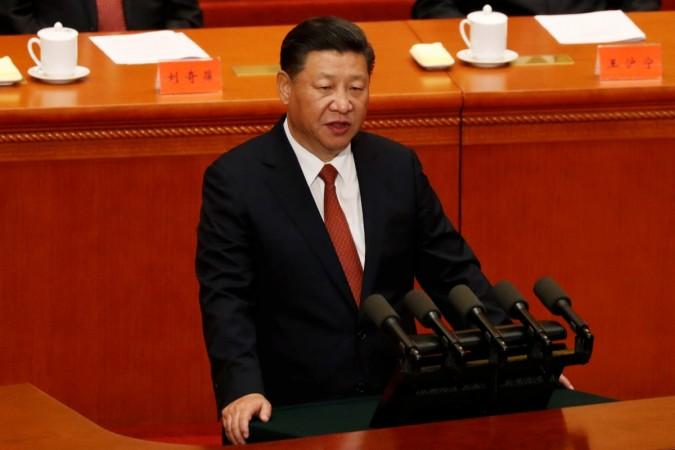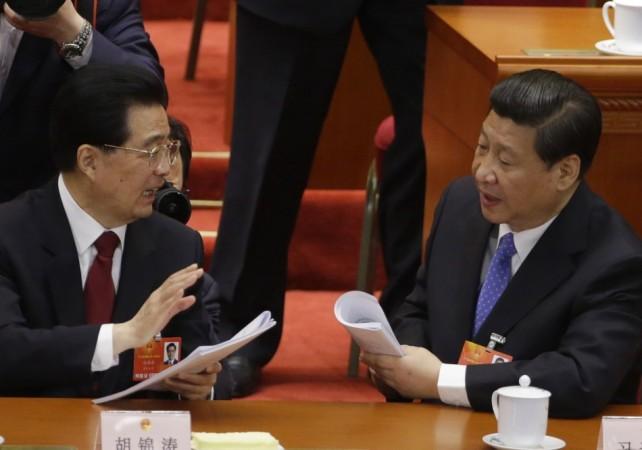
The Chinese Communist Party Congress opened with an epoch-marking address by President Xi Jinping on Wednesday, drawing the world's attention to the fundamental political changes the country might see henceforth. Xi is certain to secure a second five-year term as Party General Secretary and the nation's President, change power equations at core party forums and drive the anti-graft policy with greater force. But there could be more.
Xi's elevation to the top layer of power in the Communist Party and the country of 1.4 billion people in 2012 was followed by quick and certain consolidation of power that verged on authoritarianism. Now, midway through his regular tenure in power, the prospects of Xi staying on as the leader beyond 2022 are high. The boundless popularity he enjoyed in the last five years has forced comparisons with Deng Xiaoping and even Mao Zedong, the two most powerful leaders Communist China has seen.
Political analysts watching China have wagered strong bets on Xi assuming greater power during the Party Congress, which concludes next Tuesday. The twice-a-decade Congress, in which some 2,300 party delegates gather at the Great Hall of the People, will elect the all-powerful Standing Committee of the Politburo. Xi, who has systematically suppressed dissent along with corruption in his five-year term, is expected to bend the informal retirement rules for members of the all-powerful committee to retain loyalists.
Great leader after Mao, Deng?
Beyond that, the focus will be on what exactly transpires in the Congress in terms of nomenclatures, tokenisms and myriad party processes. Will he be named Chairman? Will his name be written into the Party constitution? How many times is he going to be referred to as the leader? All this is possible, analysts say, leading to the potential liquidation of the long-held Chinese principle of 'collective leadership.'
If Xi is indeed named the party Chairman, that will mark the end of an era, or in other words, start a new one. Only two leaders -- Mao and Hua Guofeng -- were ever crowned as Chairman since the founding of the People's Republic of China in 1949. A resurrection of the title of Chairman will mark a significant break from tradition as it's akin to bringing back the personality cult that was discouraged in the tumultuous years after Mao.
As party general secretary and president, 64-year-old Xi has his firm grip on the country but his powers are not unlimited as the absolute power rests with the Politburo Standing Committee. But this will change drastically if he is named the Chairman.
Angling for absolute power
The elevation of Xi as Party chairman will signal the end of the "concept of collective leadership", Reuters cited a Beijing-based Asian diplomat as saying. "He won't have to answer to anyone," the diplomat told the agency. If he's named Chairman at the end of the party Congress he will stay in power beyond 2022 and will be on the pedestal as Chairman Mao.

Another straw in the wind as far as party organisation goes is whether Xi and his guiding philosophy will be written into the party constitution. The three-and-a-half-hour speech made by Xi on Wednesday morning certainly has long-term policy elements that call for inclusion in the party charter.
While laying out the direction of the country for the next two decades, Xi espoused "socialism with Chinese characteristics for a new era". He said this slogan will be the guiding principle for China as it implements an ambitious growth strategy in the next 30 years.
The slogan was released amid speculation that Xi's political thought would be written into the party charter, the South China Morning Post said.
Socialism with Chinese characteristics for a new era
In his speech Xi hailed the beginning of a new era in the party as it faces up to changing global challenges. "The situation both domestic and abroad is undergoing profound and complex changes ... every one of us in the party must do more to uphold party leadership and the Chinese socialist system and resolutely oppose all statements and actions that undermine, distort or negate them," Xi said.
His new-era slogan is embellished with as many as 14 guiding elements, all of which seek to solidify the party's grip on all aspects of life in China. "We must unwaveringly uphold and improve Party leadership and make the Party still stronger," he added.

The Communist Party, which was founded in 1921, already has 89 million members in it, making it a demographic block larger than Germany. Xi said a new campaign will be launched to ensure that all members practice and disseminate its new theories to fulfil its historical mission in the new era.
Among other things, Xi highlighted the "irreversible momentum" in the fight against corruption. The merciless and unforgiving anti-graft campaign earned Xi a lot of popular support and helped re-establish a grassroots connect that was missing in the era of Hu Jintao and Wen Jiabao. Under the anti-graft campaign, more than 1.3 million people, including senior officials, were charged and jailed.
Dissenters in anti-graft dragnet
In his party Congress speech, Xi underscored a "zero tolerance" approach to graft, adding that the government has been unswerving in "fighting tigers, destroying flies and hunting down foxes."
While the thieving tigers and flies translate into top officials and low-rank bureaucrats, Xi's critics and rivals, party dissidents and pretenders also fell into the fearsome anti-graft dragnet. Former security chief Zhou Yongkang, top army official Xu Caihou and up and coming leader Sun Zhengcai who was thought to become the president one day are some examples.
Success, or the popular perception of how a strong leader should be, matters the most in the end. Xi maybe a consummate party operator who presided over purges and authoritarian consolidation of power but the vast majority of Chinese believe he is their most effective leader after Mao and Deng Xiaoping.
"Of course, there is a lot of criticism from intellectuals about the personality cult and the tight control ... But Xi Jinping's popularity is solid among the laobaixing [common folk]. They see him as a strong leader ... He gets things done. He makes Chinese people proud. There is a tendency to view him as the third great leader since Mao, Deng and then Xi," Cheng Li, director of the Brookings Institution's John L Thornton China Centre in Washington, told the Guardian.










